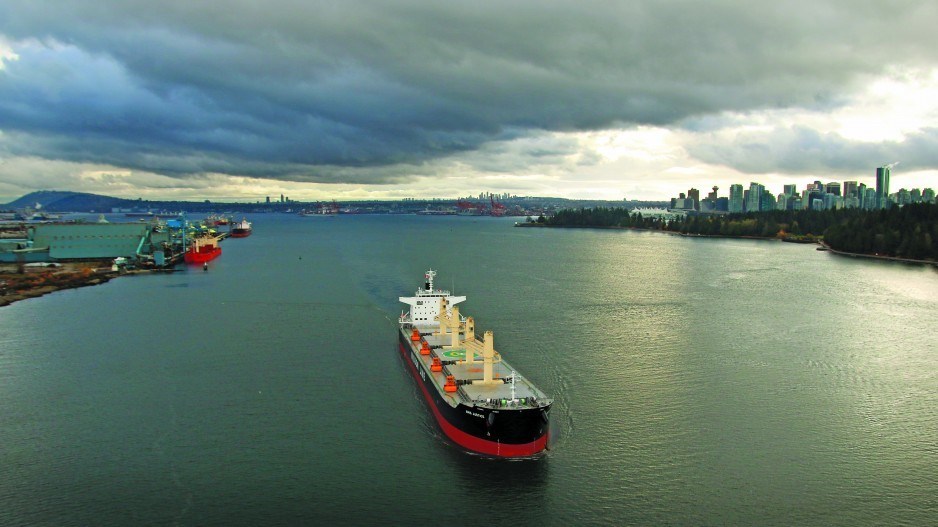A new Vancouver-based not-for-profit aims to make the transportation corridor between Canada, Japan and South Korea greener.
The North Pacific Green Corridor Consortium (NPGCC), which announced its formation on Monday, said its members and partners will work together to support the decarbonization of transportation, clean energy security and supply chain resilience on multiple commodities, including agricultural products, metal concentrates and steelmaking coal.
"The launch of the North Pacific Green Corridor Consortium is a major step forward in achieving a sustainable and decarbonized future for the critical minerals value chain,” said Ian Anderson, a board member of the NPGCC and chief commercial officer at Teck Resources Ltd. (TSX:TECK.B), in a statement.
He said the organization aligns with the federal government’s Green Shipping Corridors Framework, which outlined the target to achieve zero-emission shipping by 2050.
“The NPGCC [will be] fostering international collaboration and setting ambitious milestones to create a net-zero future from producer to shipper to customer,” said Anderson.
There are nine founding members of the NPGCC, which are companies and organizations from the energy, shipping and automobile industries in Canada and Japan.
This includes B.C.-based Oldendorff Carriers, Teck, Trigon Pacific Terminals, the Vancouver Fraser Port Authority and Prince Rupert Port Authority, Tokyo-based NYK Bulk & Projects Carriers and Mitsubishi Heavy Industries, as well as Mitsubishi Canada Ltd. and Canadian National Railway from the East Coast.
The members represent about 25 per cent of the more than 100 million tonnes of bulk commodity products shipped annually through the ports of Vancouver and Prince Rupert, according to the NPGCC.
“The NPGCC's activities will focus on pathways to optimize energy efficiency with the specific goal of advancing projects and infrastructure required to achieve meaningful emissions reductions in the near term,” said the organization in a statement.
“Consideration will be given to the potential production, storage and bunkering of lower-carbon fuels and propulsion options for use by NPGCC members and other parties.”
The NPGCC said it will also engage in research, knowledge-sharing, advocacy, member co-ordination and recruitment to accelerate members’ progress towards their decarbonization objectives.





